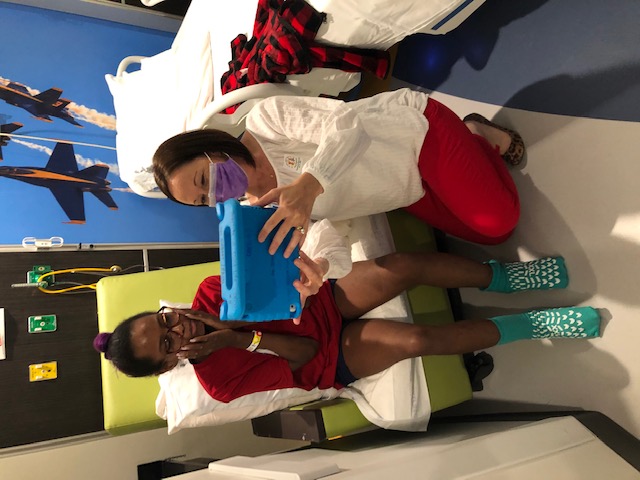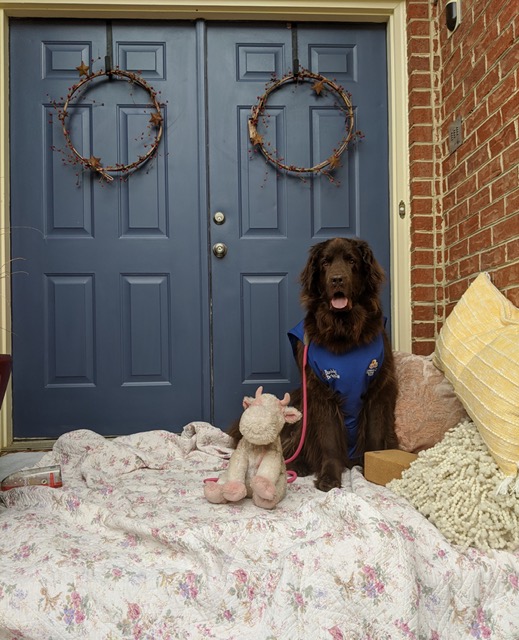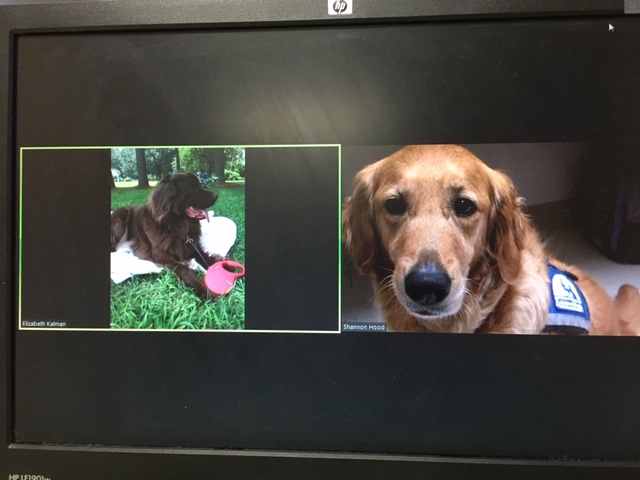NORFOLK, Va. (WAVY) — Because of virus related restrictions, a popular program at the Children’s Hospital of the King’s Daughters (CHKD) was put on pause, but it didn’t take long for hospital staff and volunteers to get creative.
Therapy dogs are shown to alleviate stress, calm people down, and even reduce blood pressure. That’s why they’ve been roaming the halls and rooms of CHKD for roughly 15 years. The program was put on paused because of the pandemic, but with some creative changes, organizers are finding unexpected benefits.
Elizabeth Kalman is the handler for Luna, a Newfoundland therapy dog. They’ve been part of the Buddy Brigade for years and didn’t hesitate to participate in a virtual option when the pandemic hit. The virtual option utilizes the hospital’s closed circuit TV system.
“All you have to do is turn your TV on in your patient room and all of a sudden you’ve got a dog visitor. It’s not the same, but we’ve had some wonderful things come of it,” said Kalman. “It’ been an opportunity for Luna to showcase some of the similar things that she does and how she spends her time.”
CHKD Child Life & Patient Experience Manager Shannon Hood says there’s been a lot of research that shows the benefits of dogs in hospitals.
“When we’re in a place where you can’t socialize with friends as much and then on top of that, you add the isolation of being in a hospital and not being able to leave your room as much, it’s really something to look forward to and I think it really just brightens the eyes of our patients and families,” said Hood.
There are 60 dog and handler teams in the Buddy Brigade. While they wish the dogs could visit in person, there are perks that have come from the virtual format.
Hood said, “Now, every patient in our hospital has access so the cool thing is, that everybody has access Buddy Brigade whether they’re on isolation or have a fever or not.”
“A dog in a room doesn’t work as therapy if you are afraid of dogs,” said Kalman. “Having a dog talk to you through a television and maybe humanize the dog a bit, and get it so that there’s not as much fear is kind of a positive thing.”
Kalman says it’s always a great experience to brighten someone’s day, whether in person or on a screen.
“You really feel, once you start working in there, that you’re part of something greater,” said Kalman.
They hope to be able to bring the dogs back into the hospital soon, but of course that depends on the pandemic. Even when they do, Hood says the virtual visits will stick around.













































































































